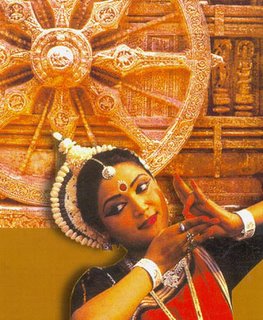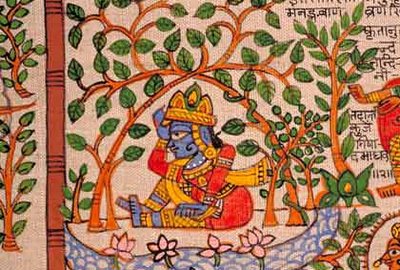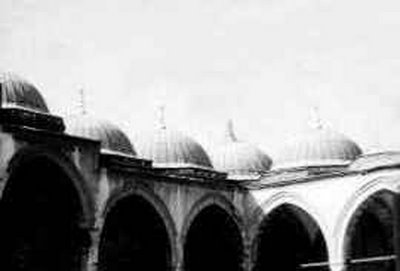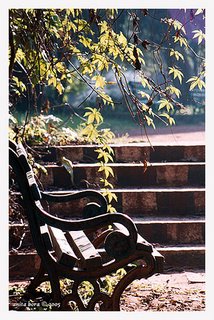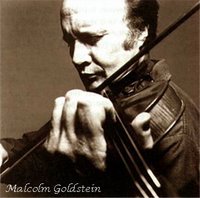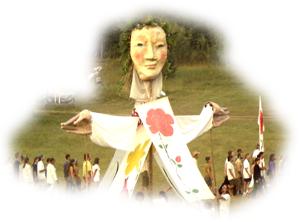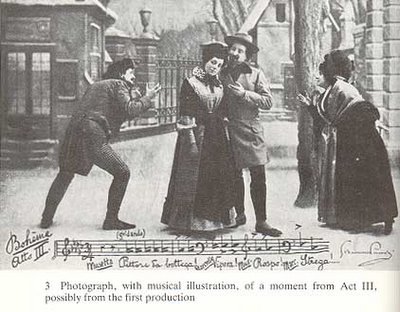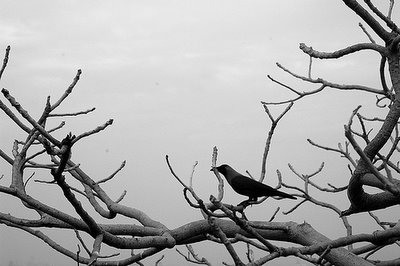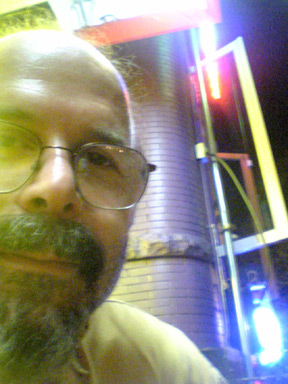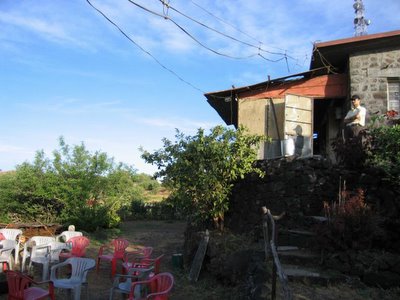
Belatedly (or, a month after-the-event), I've had the pleasure of viewing some snapshots from the November 12/13th campout & "read-meet" in Pune, attendance at which happily filled my first night in India. This was a group excursion by denizens of the Pune contingent of
Caferati, joined in the instance by a number who'd driven in from Mumbai (including for example the redoubtable
Peter Griffin, who, in the turn of things, would tend the campfire). I myself had caught the train from Mumbai, greeted by an indefatigable elf known as
Max Babi, whom (thanks to cellphone technology) I managed to locate amid the teeming throngs of Pune's Saturday evening train station.
We managed to meet up with some half-dozen of the Mumbains, who'd been long ensconsed at an obscure rural teashop awaiting us (myself, Max, and Max's wife Nino) -- others from the group having meanwhile already hit the mountain trail, trekking up to the hilltop destination.
We drove to a parking lot some ways up the hill, but there remained what might've amounted to a couple km. of trekking for us anyway. I was (foolishly) burdened with laptop computer+gear (a nice laptop, but heavy; Toshiba -- fully fitted out for video editing & DVD burning), on a theory I might get some chance to attend to a bit of
work [whose deadline impinged: this, another tale I'll pass over].
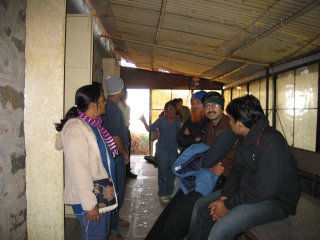
No such occasion seemed to suggest itself; the read-meet continued all night, I eventually retiring (beyond 4am) for perhaps 2-3 hours of sleep. The room to which I repaired for this was a very dharmashala-ish affair; I'm sure some half dozen others must've eventually crashed there as well, I didn't keep track of goings & comings. The beautifully spare accommodations (including some perhaps 20 blankets & pillows in this one room; there were a couple rooms, -- these old stone buildings, not perhaps part of Shivaji's fort itself, but wraught from kindred materials) were part of the charm of the whole
gestalt. Ditto the superb repast that was spread for us by the quiet & attentive serving staff (the outlandishly -- by American standards -- inexpensive group deal including a lavish meal plus use of the premises, -- in the instance including the campfire -- site of which [fire long gone] is noted at top above [by the plastic chairs, the latter looking pedestrian in light of day, but servicable in deep of night: though I'd opted for sitting on ground, and eventually (during an ultimate, classic Hindi-filmsongs phase of the nocturnal evolution (
Suniti Joshi proved a superb singer, among others)) -- reclining on the congenial earth] -- around which (um, said fire) we gathered, circa midnight (post-dinner), for poems, stories, songs. (The campfire proceedings in fact commenced w/ my own solo singing: a couple of my old Tagore song-settings, -- things I rarely pull out of mothballs, but did a couple of times in my India wanderings. Later, I'd sing from my Ghalib settings for the Ustad in Panvel, by way of self-introduction -- another late night 2 days later. But I digress.)
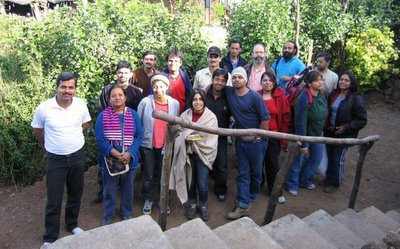
I'll put in a few other photos -- these are all courtesy of Alaka Yeravadekar -- without much more comment.
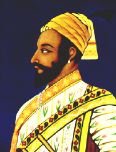
This
Sinhagad ["Lion-fort"] is familiar in annals of Maharashtran history, it having been taken over by Shivaji's forces (the 17th century hero presumably lived up there for some time) at some point in the martial saga of his campaign (essentially protecting this region of India for rule by locals rather than by would-be conquestors). I'd need to go back and read the comic book again for all particulars. ;-)
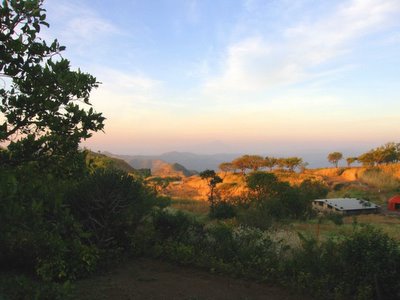
The significance of Shivaji in Meher Baba's construction of historical cycles (Shivaji having been identified as a "minor Avatar" whose work served as preparation for / prelude to Meher Baba's own, in the same region) will be familiar to a few readers of this space.

It proved a memorable pleasure to have passed so enjoyable a literary night at this naturally-beautiful & historically-evocative location.
Thanks to
Alaka for the images.
Perhaps on some other occasion I might recall a few details of the reading itself. (Typing this at 3:45 of a Saturday morning, I feel lazily inclined to let the photos tell their own story.)
ps & After-the-fact: I see I've gotten name of the hill wrong! Well, at least
Twisted Humor (Vinod) gives it as
Simhagarh.
Ms and
Ns,
Ds and
RHs -- let's not call the whole thing off. I've meanwhile posted / circulated this item with current (mis)title; & since change of title kills the link, so Singhagad [
sic] it remains here (for the moment).
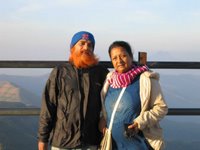
The M/N question aside, various roadside signs did seem to favor the "D" transliteration. Max had explained about the gradual loss of the aspiration ("DH") in local forms of it. The coils of Marathi/Hindi/whatnot (poss. related to this) I've (in)conveniently forgotten. Happy to've been there, however it's spelled. [nb: okay, finally fixed the title]
Ah but come to think of it, I was mentally confuting Singh with Simha -- my bad. I suppose they're cognate; but Simha (the Lion) is Simha. The tale of the naming is worth mention, since we've gone down this road. News of the battle at this location was (it's said in legend) tersely relayed to Shivaji: "The Fort is taken, but the Lion is lost." A construction that naturally called to mind another such from martial history (British in the instance): "We've lost the battle, but won the war." However, mightn't you agree that
the fort has been taken
but the lion has been lost
evokes a deeper elegaic (and wistful) quality, no? A slender strand of history, encapsulated into a sentence inevitably recalled by centuries-later visitors.
"The Lion" was evidently Shivaji Maharaj's nicname for a particularly well-loved general of his, killed in that battle.
